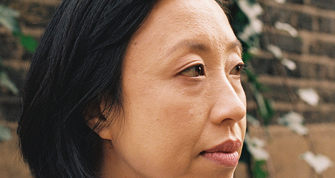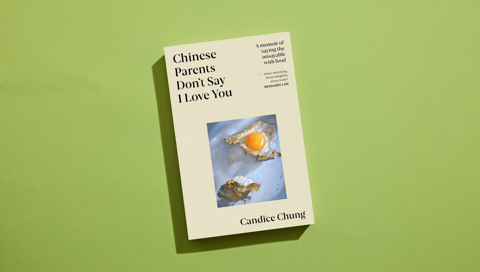Explore upcoming events

Festival month has arrived! But before the Festival officially kicks off, we want to introduce you to some of the participants who have travelled from near and far to discuss their books, writing and ideas with us. Throughout this Q&A series, get to know favourite and unfamiliar writers and consider the 2025 theme, In This Together.
Writer, editor and former restaurant reviewer Candice Chung's tender new memoir is about saying the unsayable with food.
What is the power of food?
When I think of food, I think of its transformative power. How it can change the mood of a room – like the palpable joy in the air when a birthday cake or a perfect Sunday roast gets brought out; or the way it gives us a soft landing after a big fight with our lover or a bruising day at work.
Most of all, I’m fascinated by the way we use food as a placeholder for hard-to-say things. The way it functions as a simple, direct act of care. It can be incredibly hard to turn feelings into the right words – not least because it requires us to first understand those feelings. But a piping hot bowl of rice or a slice of warm buttered toast does a lot of work on its own and asks a little less of us. On a good day, the message gets delivered straight to our stomachs, bypassing our busy minds. The result is often more eloquent.
Were there any surprises while writing your debut memoir, Chinese Parents Don’t Say I Love You?
I found out exactly how my parents met, which was fun for me. My parents don’t tend to tell elaborate anecdotes about themselves. But when I interviewed them for the book, they happily described their meet cute more than forty years ago. Something about the notion of telling their love story in the name of work relaxed them.
What’s on your TBR pile now?
I have just bought Jessica Stanley’s Consider Yourself Kissed, and Jacqueline Maley’s Lonely Mouth, both of which I am very much looking forward to read. The book that’s on my bedside table right now is Amy Liptrot’s extraordinary memoir, The Outrun, which is set in Orkney, Scotland. I’m almost done and feel completely spellbound.
What is the first book you remember reading?
That’s a hard one! I lived in Hong Kong until I was twelve. So the very first book I read would’ve been written in Chinese, but I don’t have a clear memory of it. In Sydney, I remember being read a picture book version of Beowulf during story time in year six. I didn’t understand most of it, but the feeling of sitting on the floor with other kids and listening to a story with dimmed lights really stayed with me. The first English book that I tried to read on my own was Morris Gleitzman’s Blabber Mouth.
What book do you wish you could read for the first time again?
Jenny Offill’s Dept. of Speculation.
What events at this year’s Festival are you looking forward to attending?
Helen Garner’s The Season talk. My best friend Michelle and I both love her – we read all three of her diaries together and cannot wait to see her speak in person.
What do you hope readers take away from your work?
For most authors – fiction or non-fiction – there is usually a secret question that haunts them while they are writing their book. That question itself may or may not be spelled out in the final work – but the ghostly feeling of it is there.
For me, that private question was: Why is it so hard to feel close to the people who are the nearest and dearest to us? By this I mean the gap that we feel when we fail to understand each other; or when we cannot find our way back to that warm, quiet feeling when everything is going well.
There is a necessary loneliness in trying to get close to someone. I hope my book shows it is OK to feel that loneliness – because our desire to connect, and to reach out for each other in a meaningful way can also be a tender, beautiful thing.
